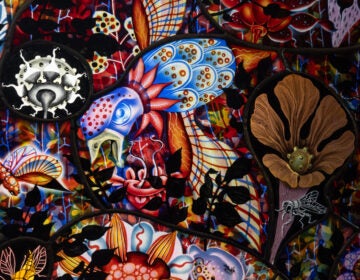Mount Airy group pushes to legalize backyard chickens
When people hear the term “backyard pets,” they usually think of cat and dogs, not chickens. Chickens are considered farm animals under current Philadelphia code and aren’t permitted on residential properties less than three acres. Of the 10 largest cities in the nation, Philadelphia is the only that bans chickens as backyard pets.
Enacted in June 2004 and sponsored by Councilman Brian O’Neill, who represents the 10th District in Northeast Philadelphia, Chapter 10, Section 112, of the Philadelphia code defines a farm animal as, “any chicken, goose, duck, turkey, goat, sheep, pig, cow or other farm animal, provided such other farm animal presents a public nuisance due to smell and/or noise.”
A group known as Philadelphia Backyard Chickens, headed by Maureen Breen and backed by Weavers Way Co-op, feels the law is unfair regarding chickens.
“It’s really time for chickens to be legal in Philadelphia,” Breen said. “They’re all over. There are so many people who have chickens and they don’t even know that they are illegal. But if a neighbor calls and says you have chickens, the city will come out and tell you that you have to get rid of them.”
Members of the group met last weekend at the Weavers Way Co-op Community Building to discuss ways to have the law amended so that chickens will be removed from the city’s definition of farm animals.
At Weavers Way Co-op, chicken owners can buy food and get advice on their coop. Agricultural teacher Diane Dunning said she thinks that education about the issue is imperative to making any progress.
“Raising awareness is probably the main key factor,” she said. She added that, “the benefits outweigh the detractors.”
Dunning said she believes there are positive health benefits that come from eggs that the chickens produce. She feels that the eggs from homegrown chickens are fresher and have less chemicals than eggs bought from stores.
“From a health perspective, it just makes so much more sense to, if you can, raise your own food. You know that it’s going to be coming from a much higher quality than factory farm-raised animals who are really raised in horrible conditions as well as not really fed well, either,” Dunning said.
Weavers Way Communications Director Jon McGoran said that push for legalizing chickens as backyard pets fits in with the growing trend of home ecosystems.
Jon McGoran, communications director at Weavers Way, discussed the potential environmental benefits of raising chickens.
“The food they produce is not the only benefit they produce. Depending on how you keep the chickens, they can be very effective at reducing the number of insect pests in a natural way. Also, if you have two or four or six chickens, they can fertilize the soil naturally.”
“[Raising backyard chickens] makes sense in a lot of ways,” McGoran said. “If you’re really interested in bringing your food production radius as tight as possible and having as much of your food as local as possible, then the next step from growing your own vegetables and fruit would be producing some animal protein.”
Group member Tara Quinlan is a prime example of a home ecosystem. She said she feels that having chickens in her backyard would strengthen her personal agricultural efforts.
“I have a garden so they could fertilize the garden,” she said. “They eliminate my having to put the compost into the trash. So instead of the trash truck taking away the compost, the chickens could take care of that in short order. It’s great for the environment.”
The group realizes that the issue is not limited to Mt. Airy or any single neighborhood and that citywide support is needed.
“We’re spreading word around the city that [legalizing chickens] needs to happen,” Breen said. “We need to broaden the base of support for the legalization so that when that the next steps are taken, there’s a really strong coalition of people already supporting it.”
Quinlan shared that sentiment.
“We’re networking,” she said. “We’re looking at banding the neighborhoods together so that when we approach the city with this, they can see that it’s not just one community but seen as a necessity throughout every neighborhood.”
Some group members have an issue with a new bill on horse regulations that is sponsored by City Councilman Bill Greenlee. Currently, there are no regulations on horse ownership in the city code. But last December, Greenlee introduced a bill to council that would allow horses to be kept on private residences as long there is one quarter of an acre of property per horse.
Group members said they feel that the proposed bill is unfair because if one quarter of an acre is enough room for a horse, it is more than enough room for a chicken.
“The average horse weighs 1,000 pounds on the light side and a chicken weighs about eight pounds on the heavy side,” Breen said. “If the city can recognize a 1,000-pound animal can be kept on a quarter of an acre, it’s time for the city to recognize that an eight-pound animal can be kept on a small amount of land.”
Dunning said she believes that a quarter of an acre is more than enough space for not just one chicken, but multiple chickens.
“I know that you don’t need a quarter of an acre per chicken,” she said. “I’m not exactly sure what the actual space needed is but it’s a lot less than a horse. I think you could probably grow at least a dozen or more chickens on a quarter of an acre for sure.”
In the end, though, the group just wants to prove that chickens are suitable backyard pets.
“We just want the law to come to recognize that now so that all chicken owners have an equal opportunity to have their chickens,” said Breen.
This story is the second of two about backyard chickens in Philadelphia and the effort to legalize them. It’s done in partnership with NEastPhilly.com and Philadelphia Neighborhoods. You can read part one here.
Greg Paone and Nichole Baldino are students at Temple University. They produced this piece in collaboration with the Multimedia Urban Reporting Lab and NewsWorks/WHYY.
WHYY is your source for fact-based, in-depth journalism and information. As a nonprofit organization, we rely on financial support from readers like you. Please give today.




